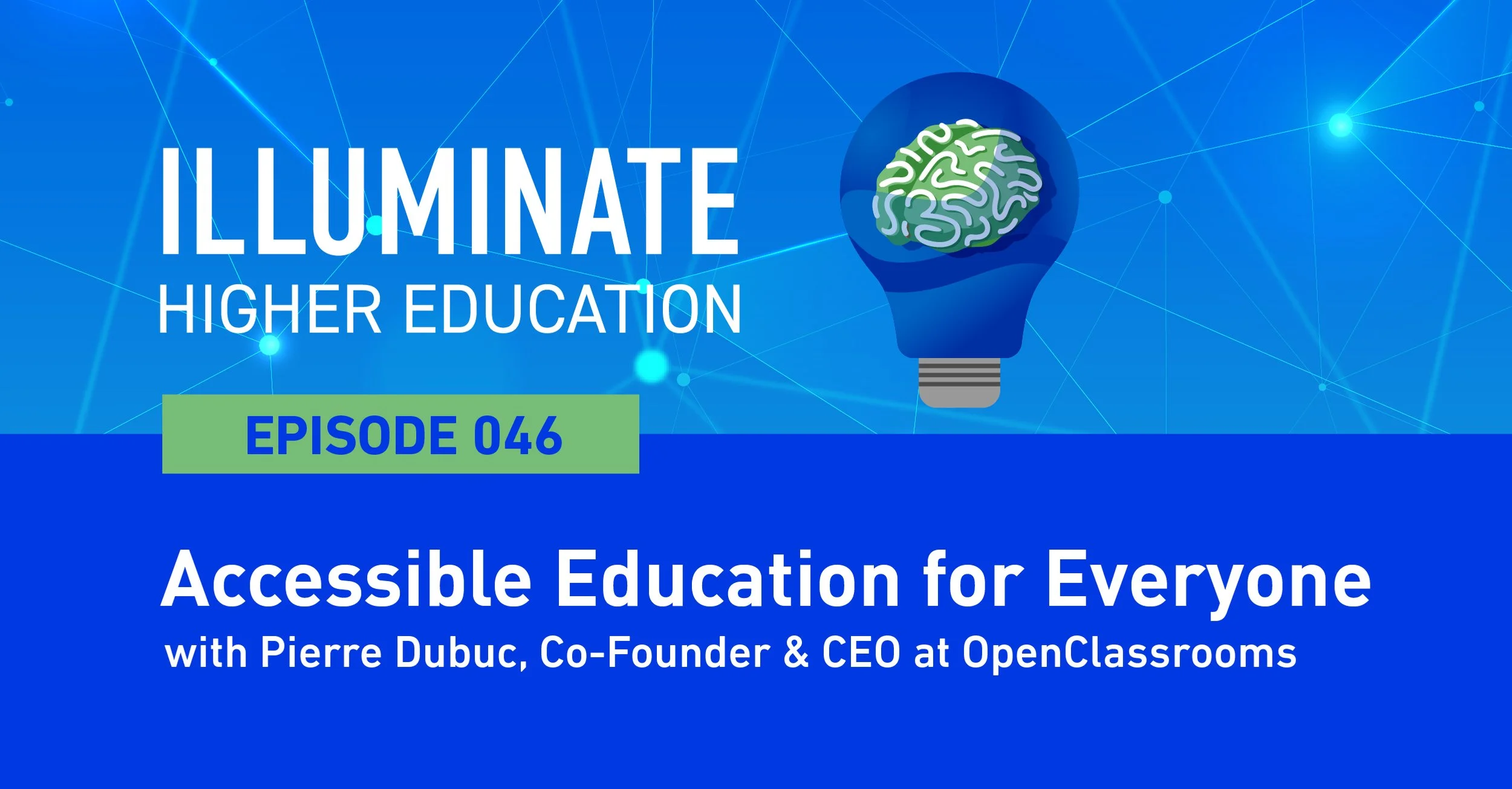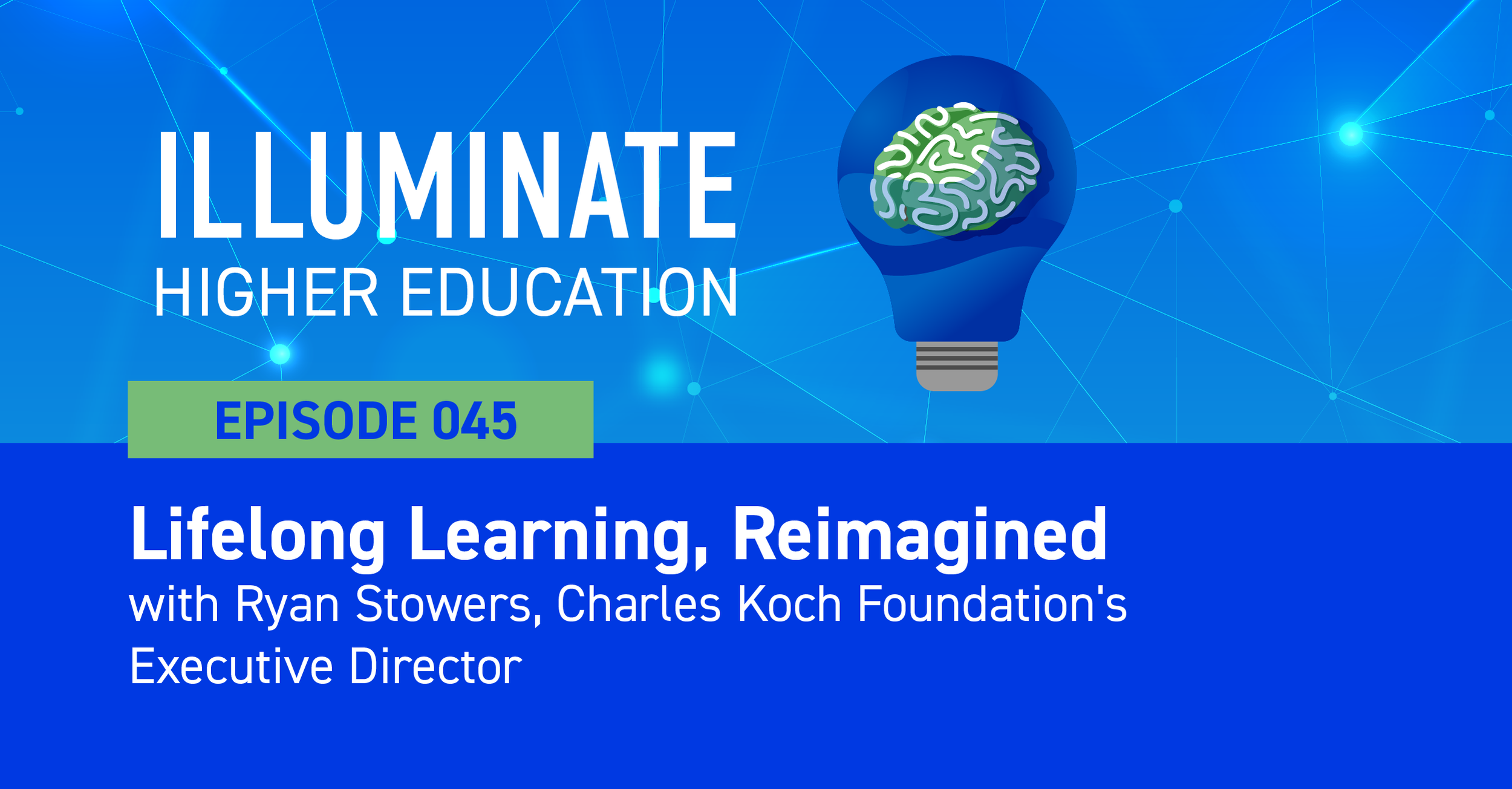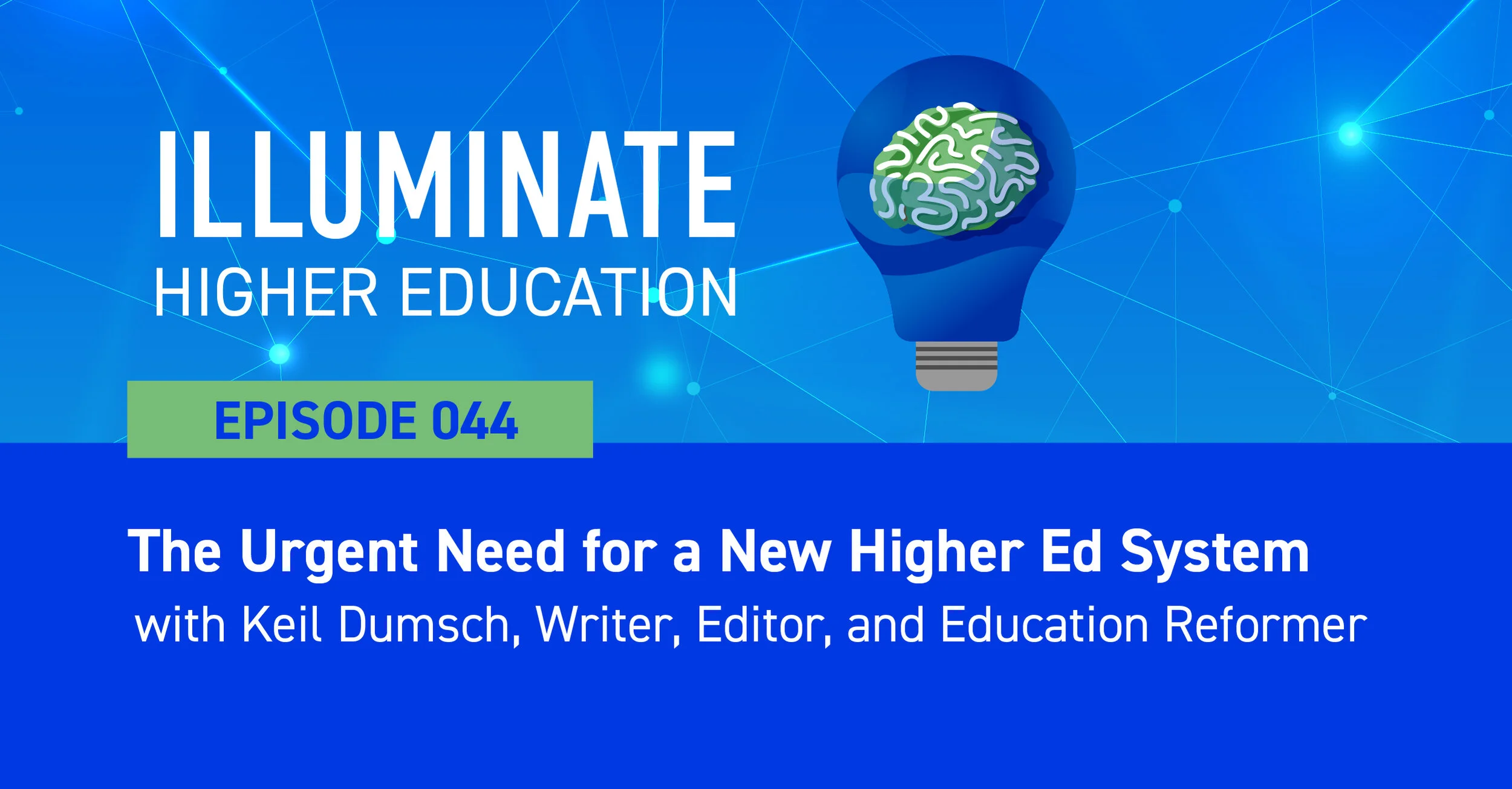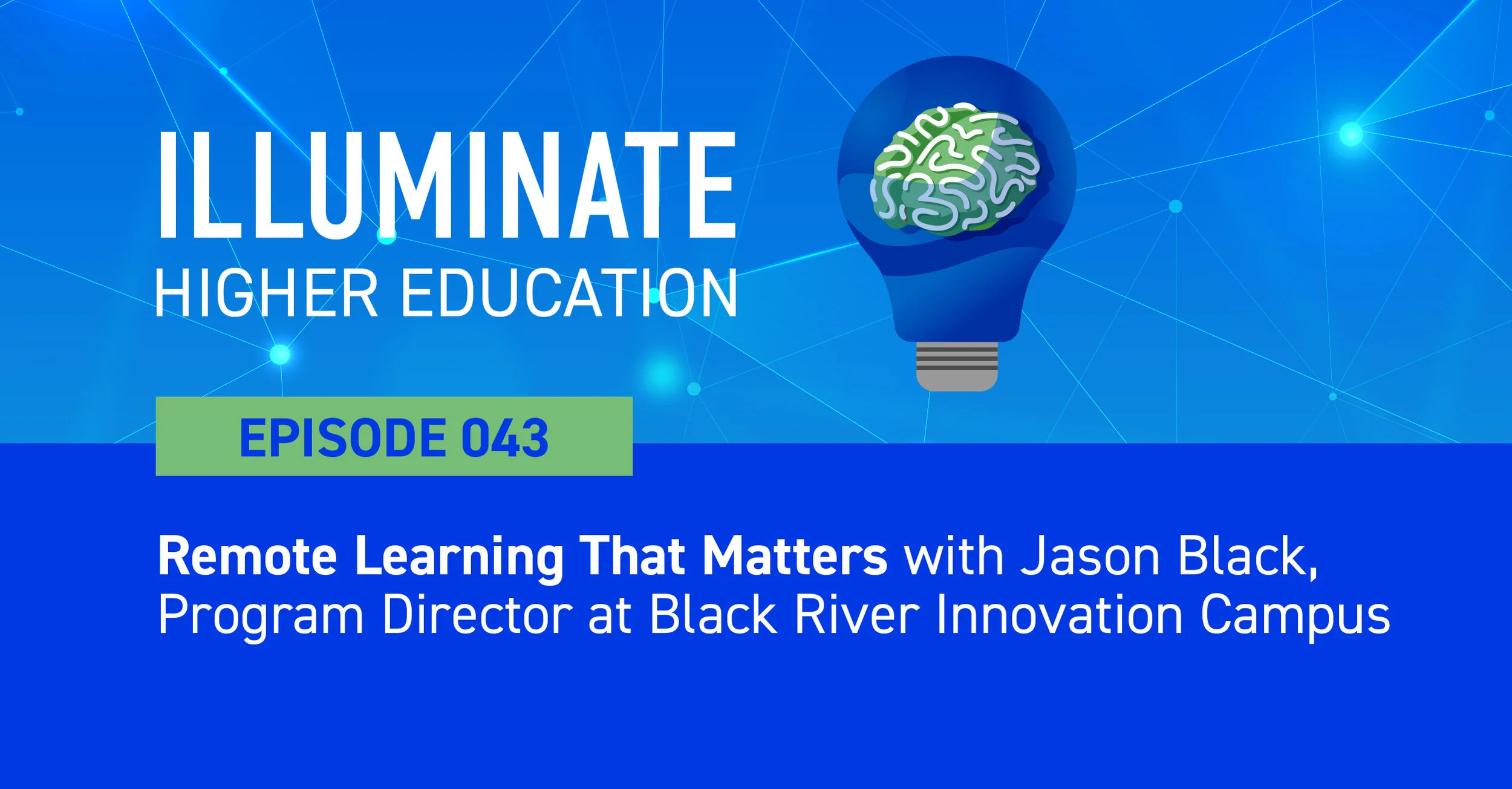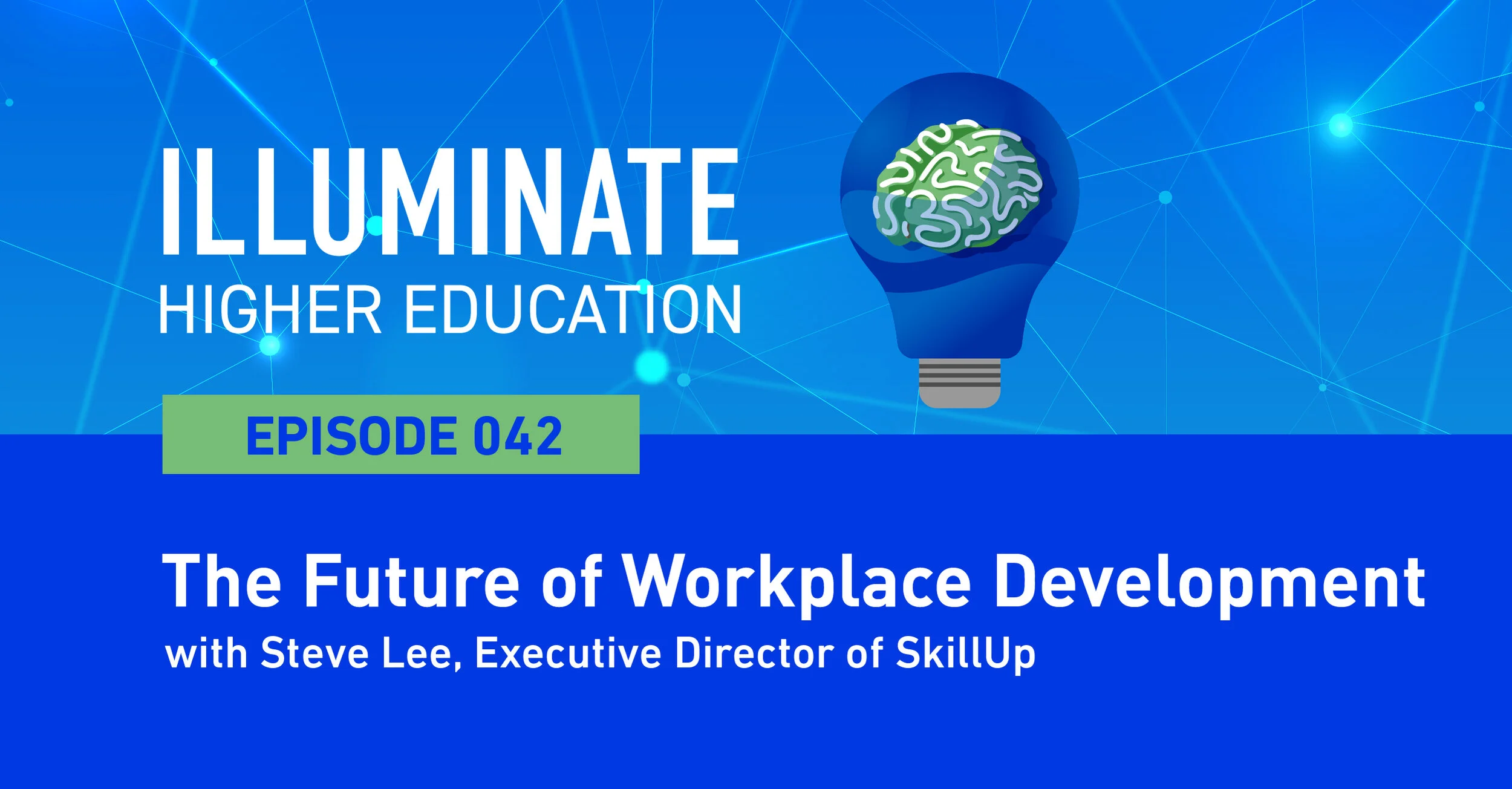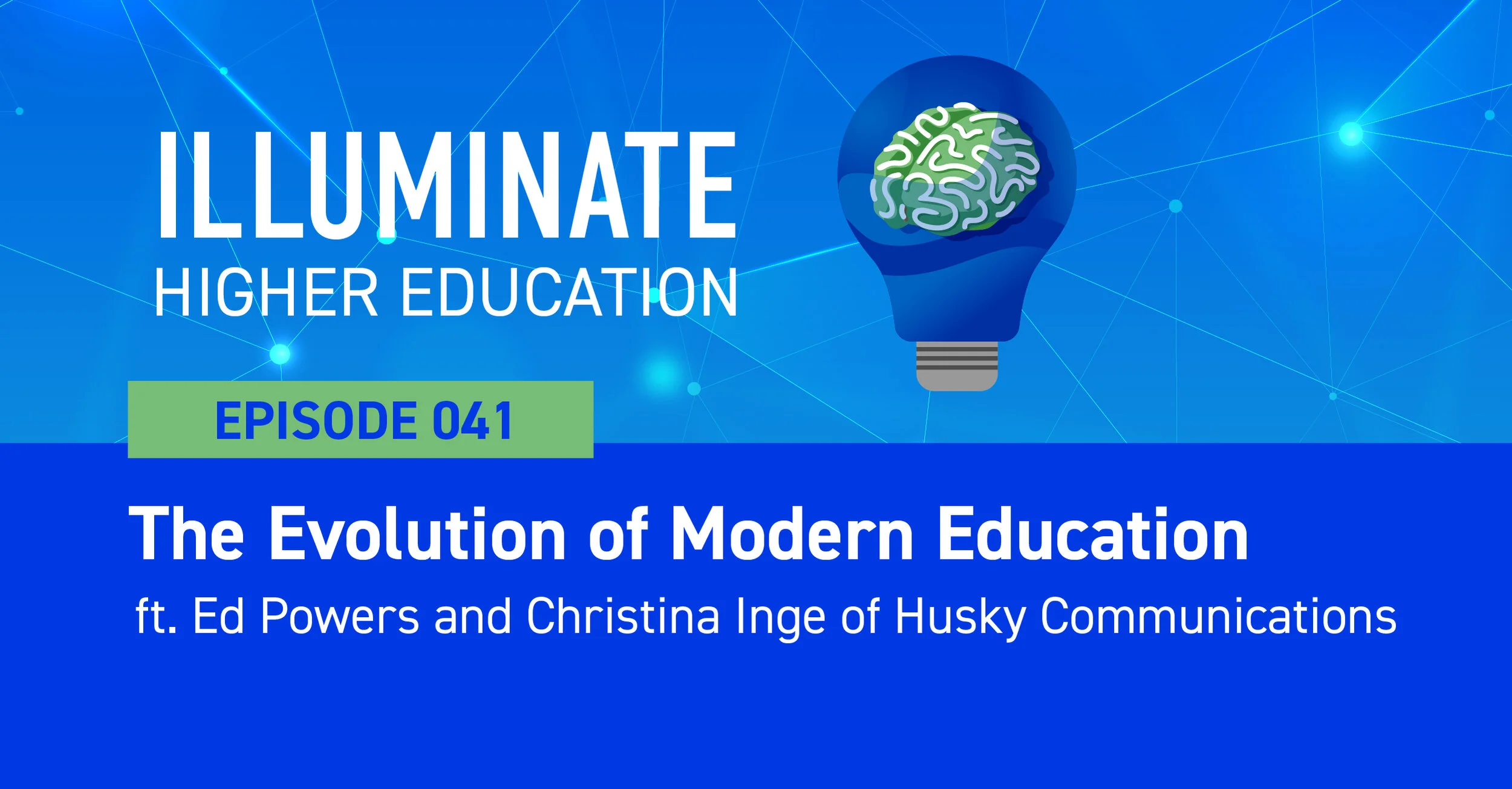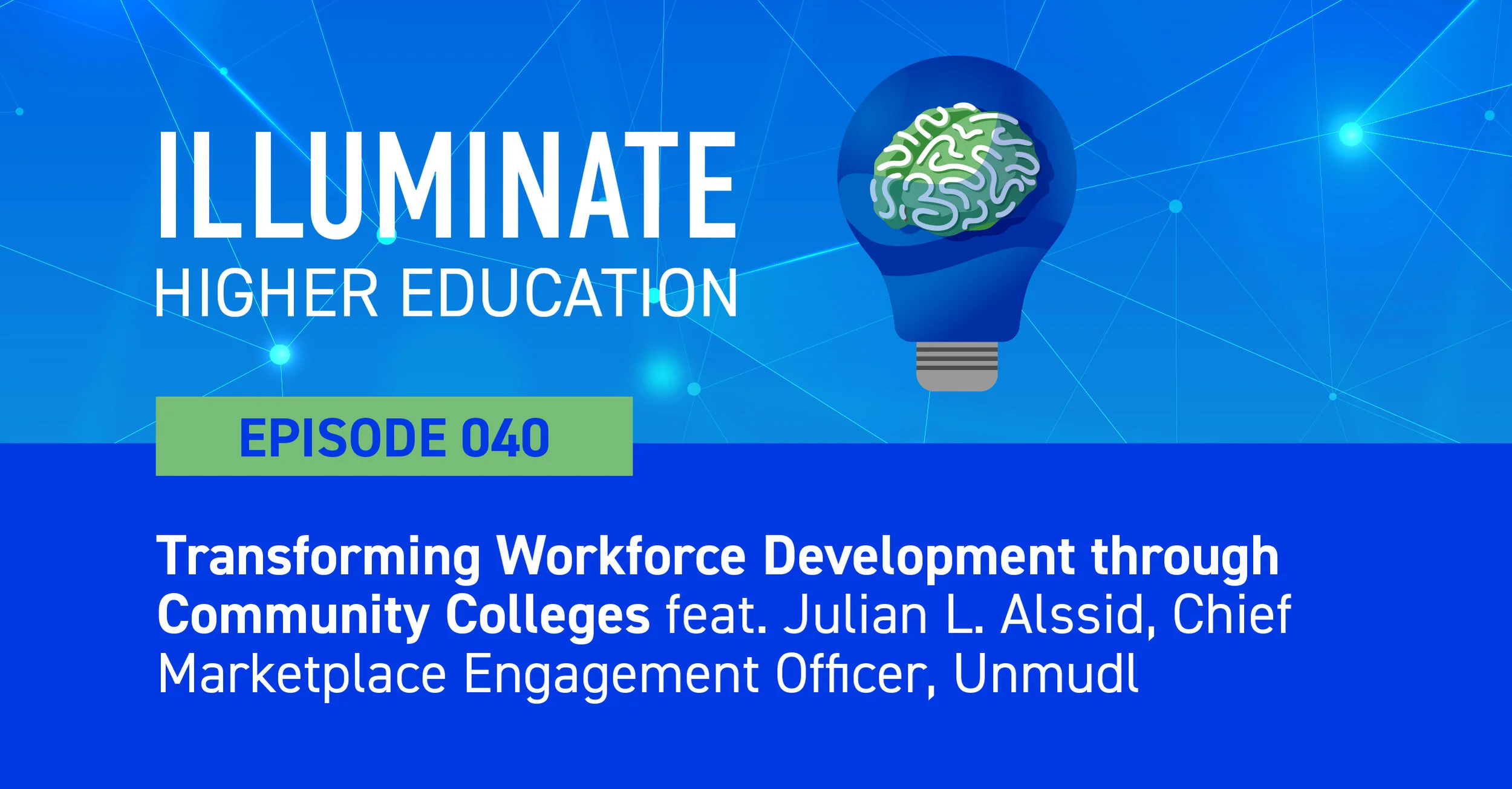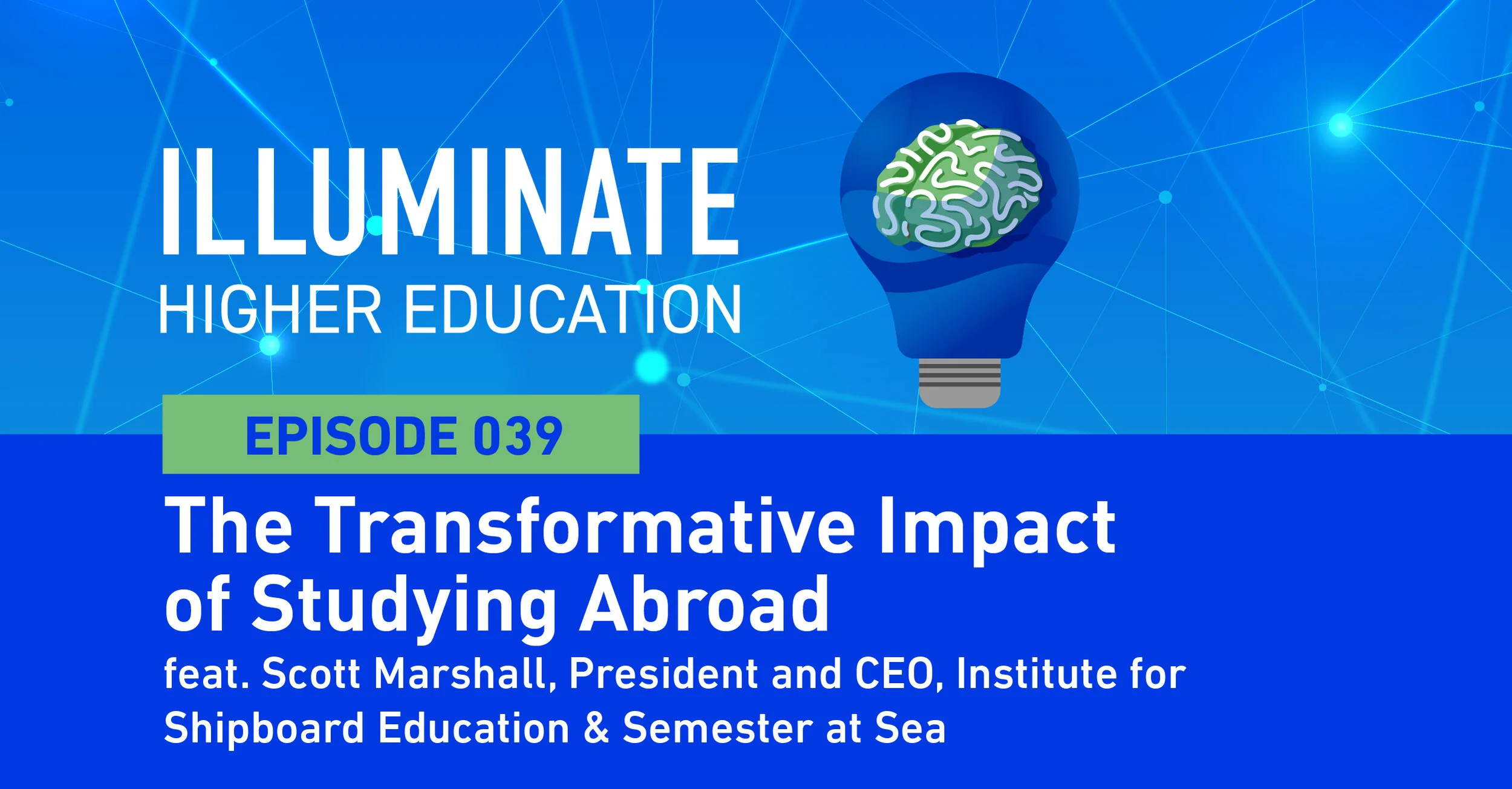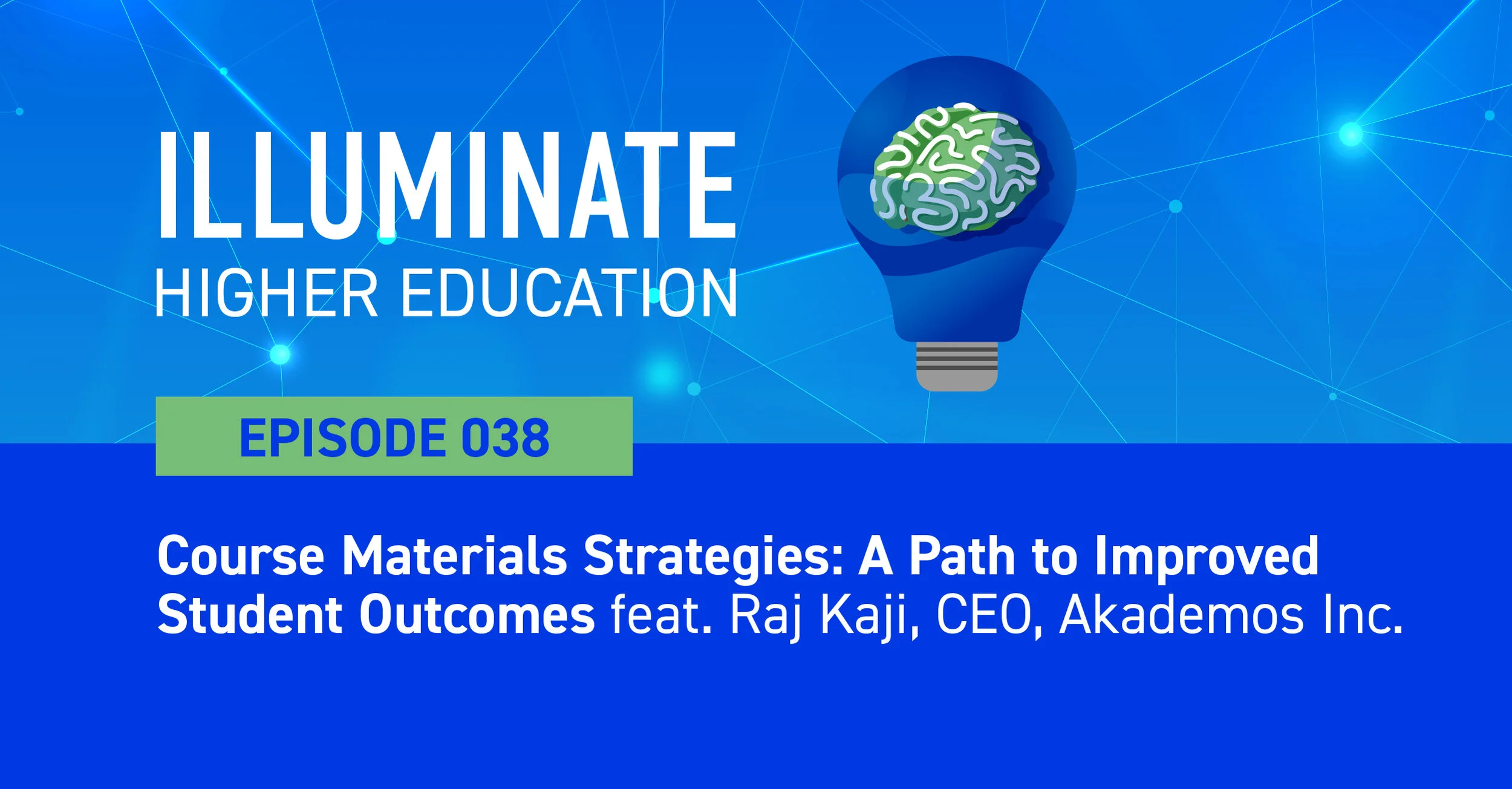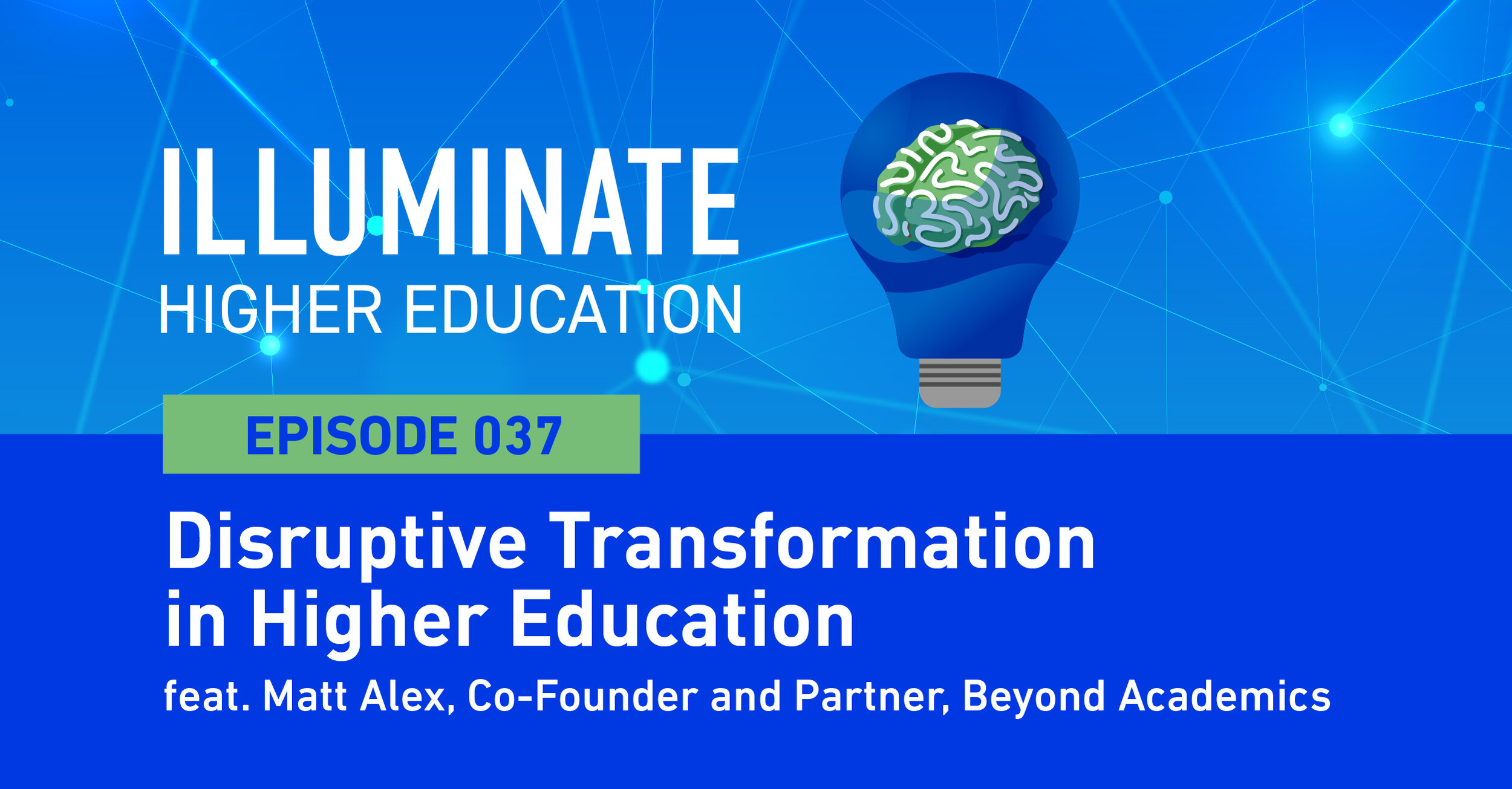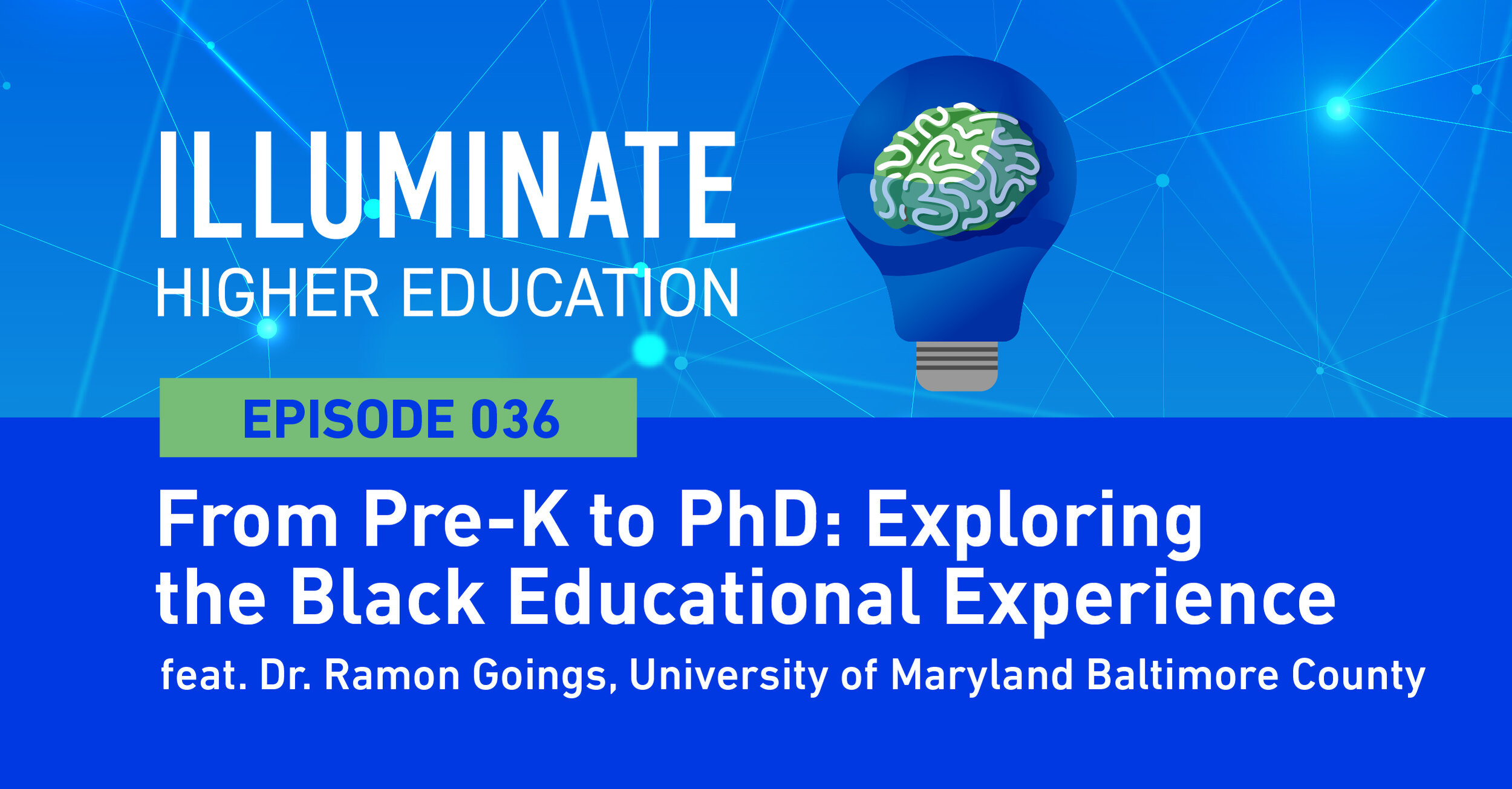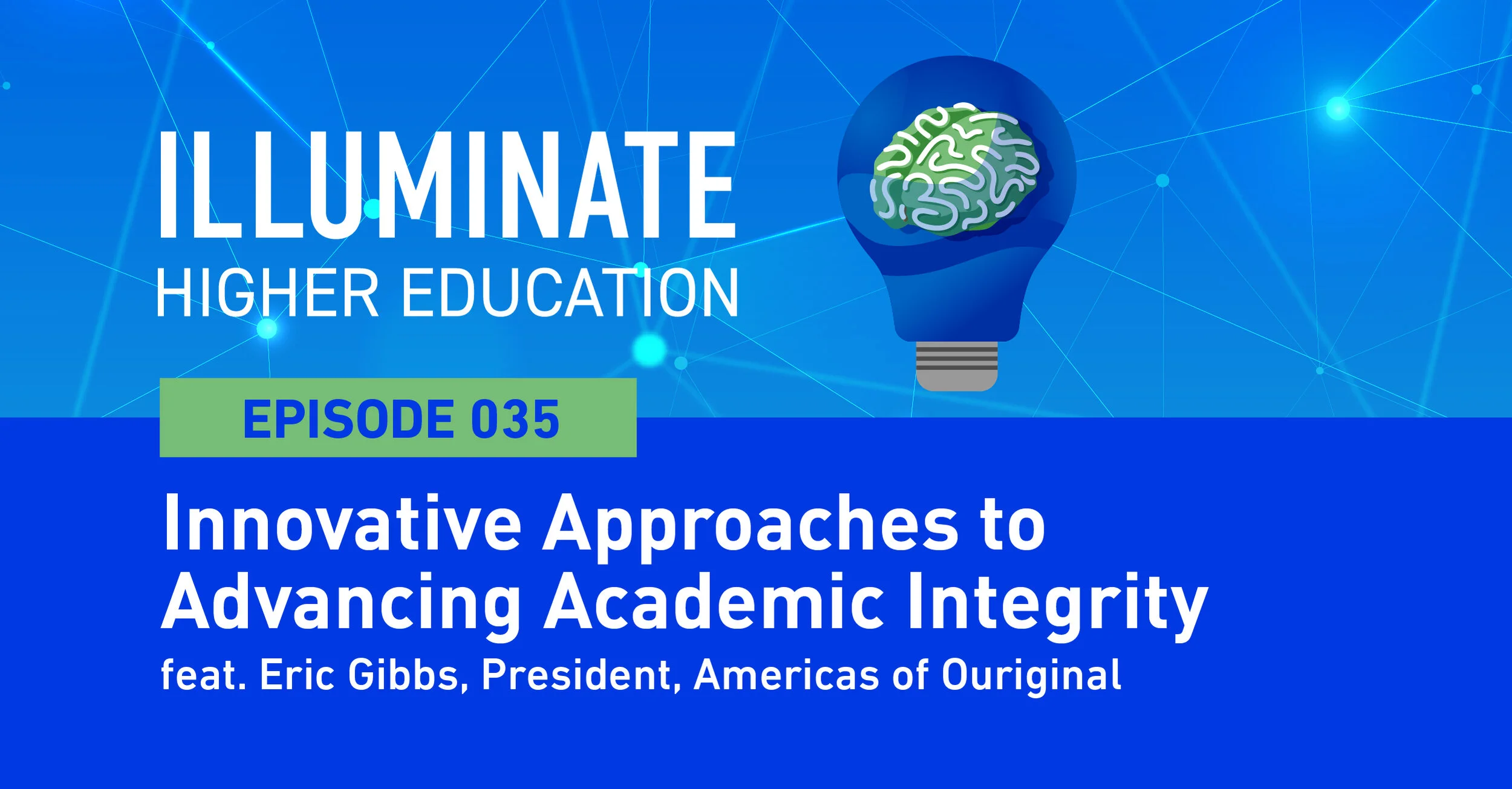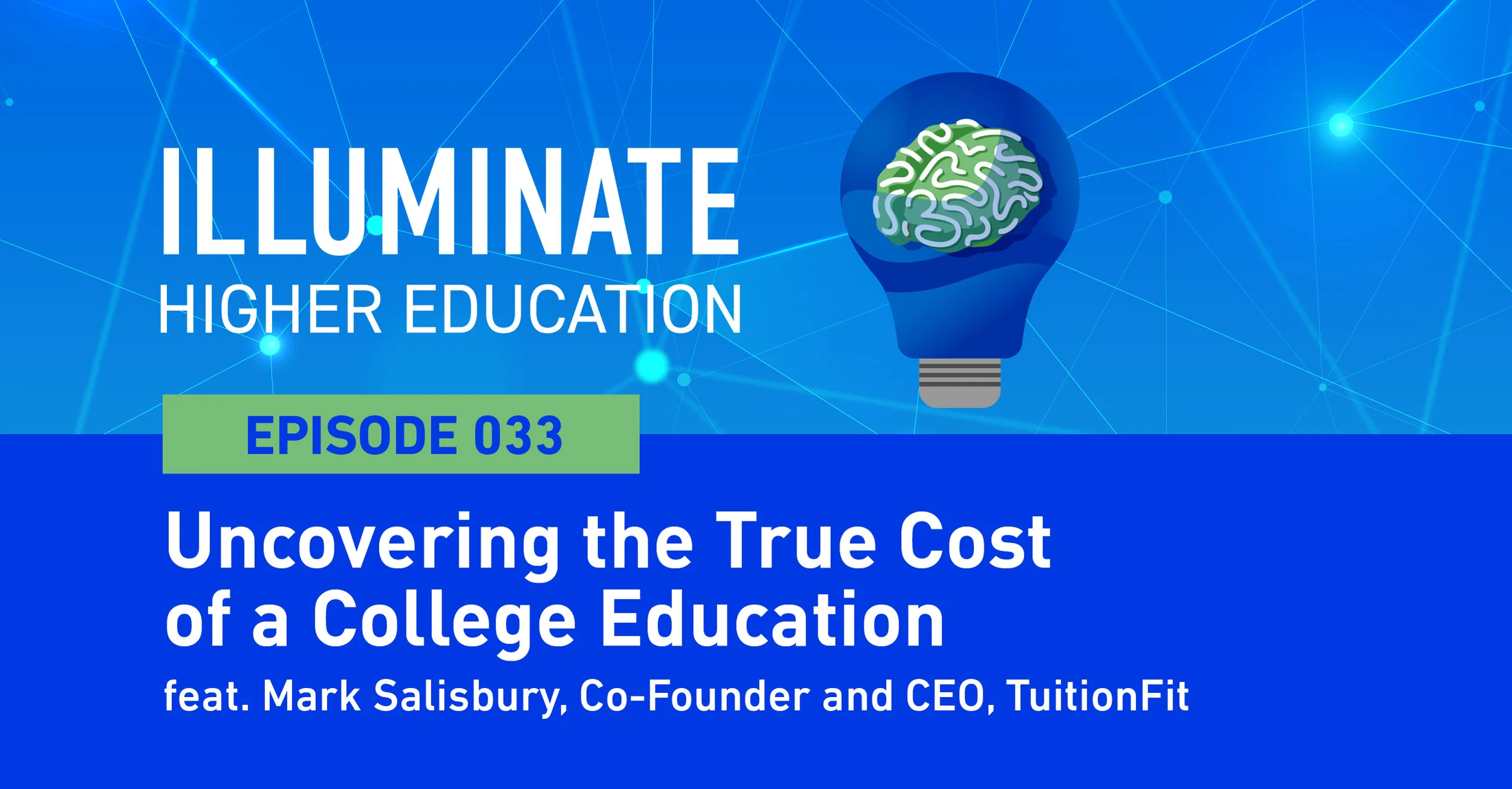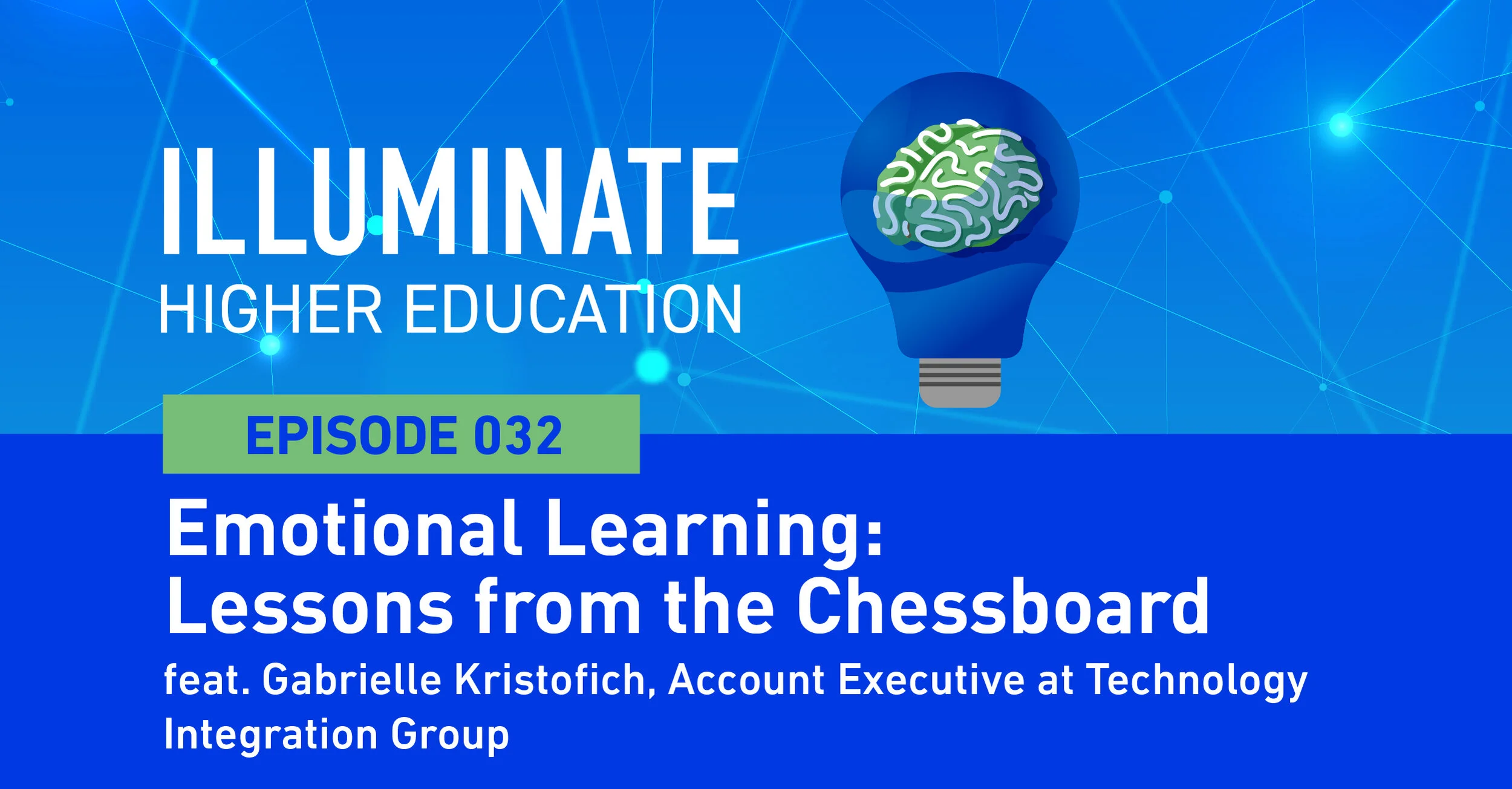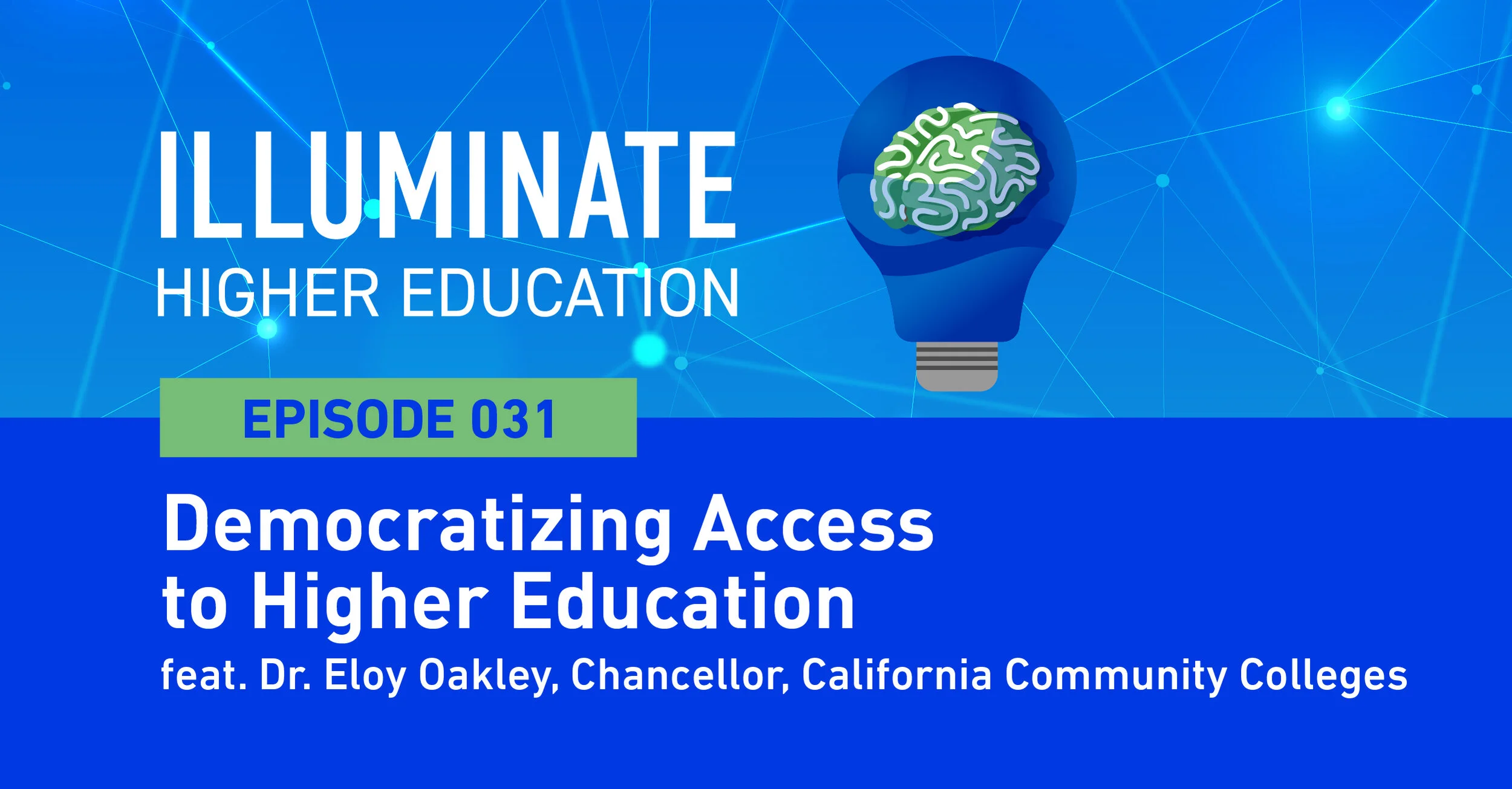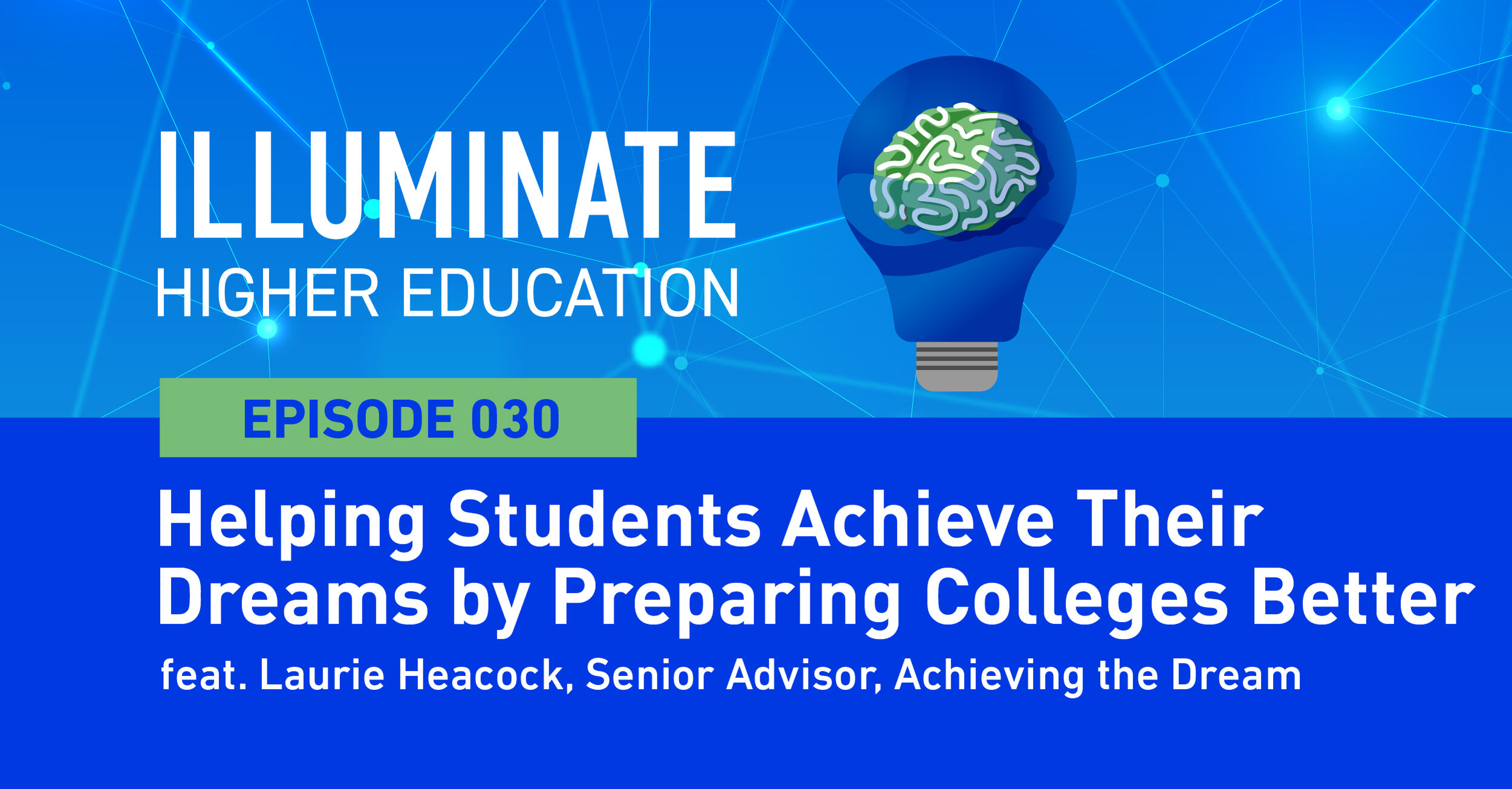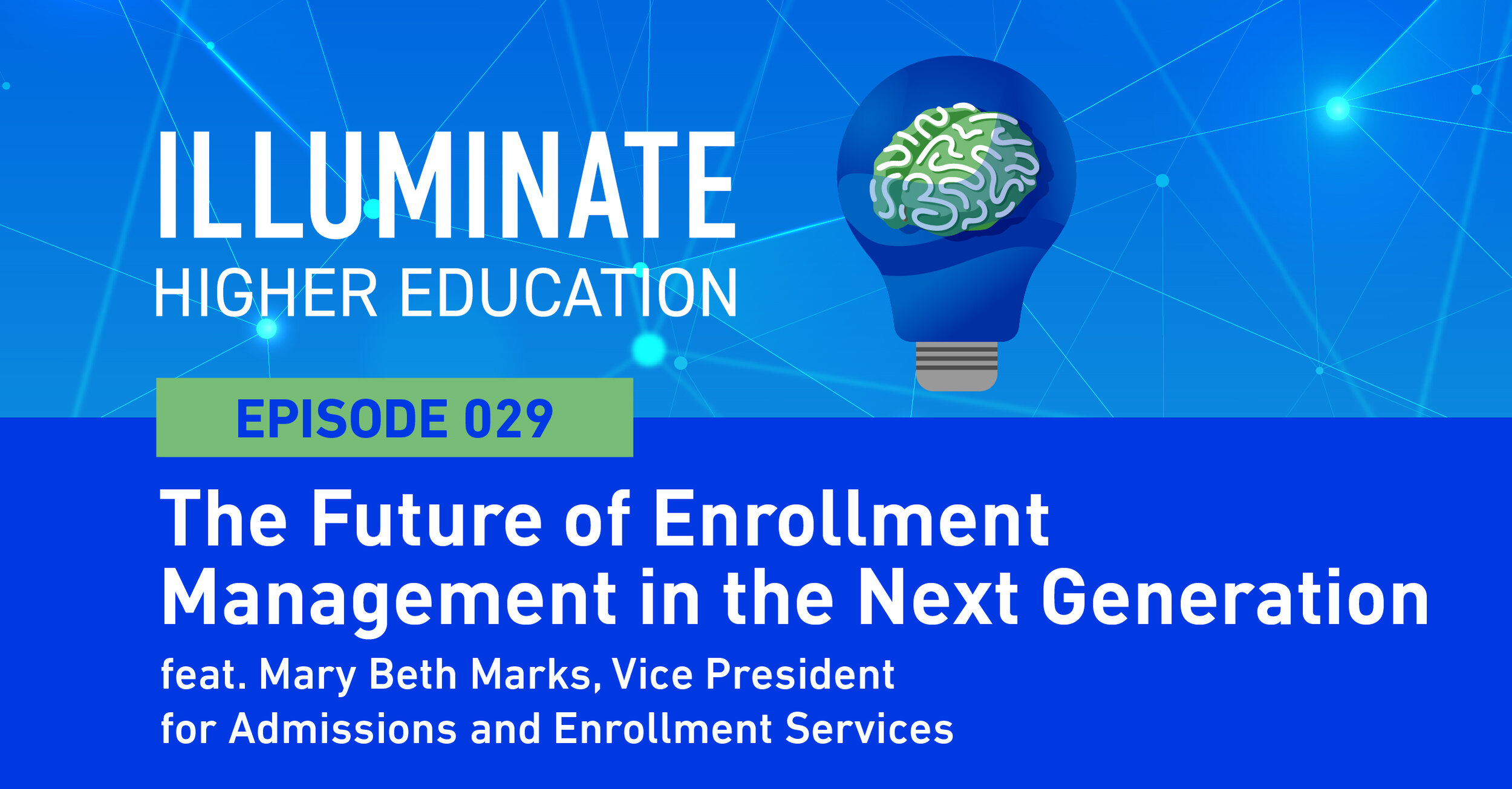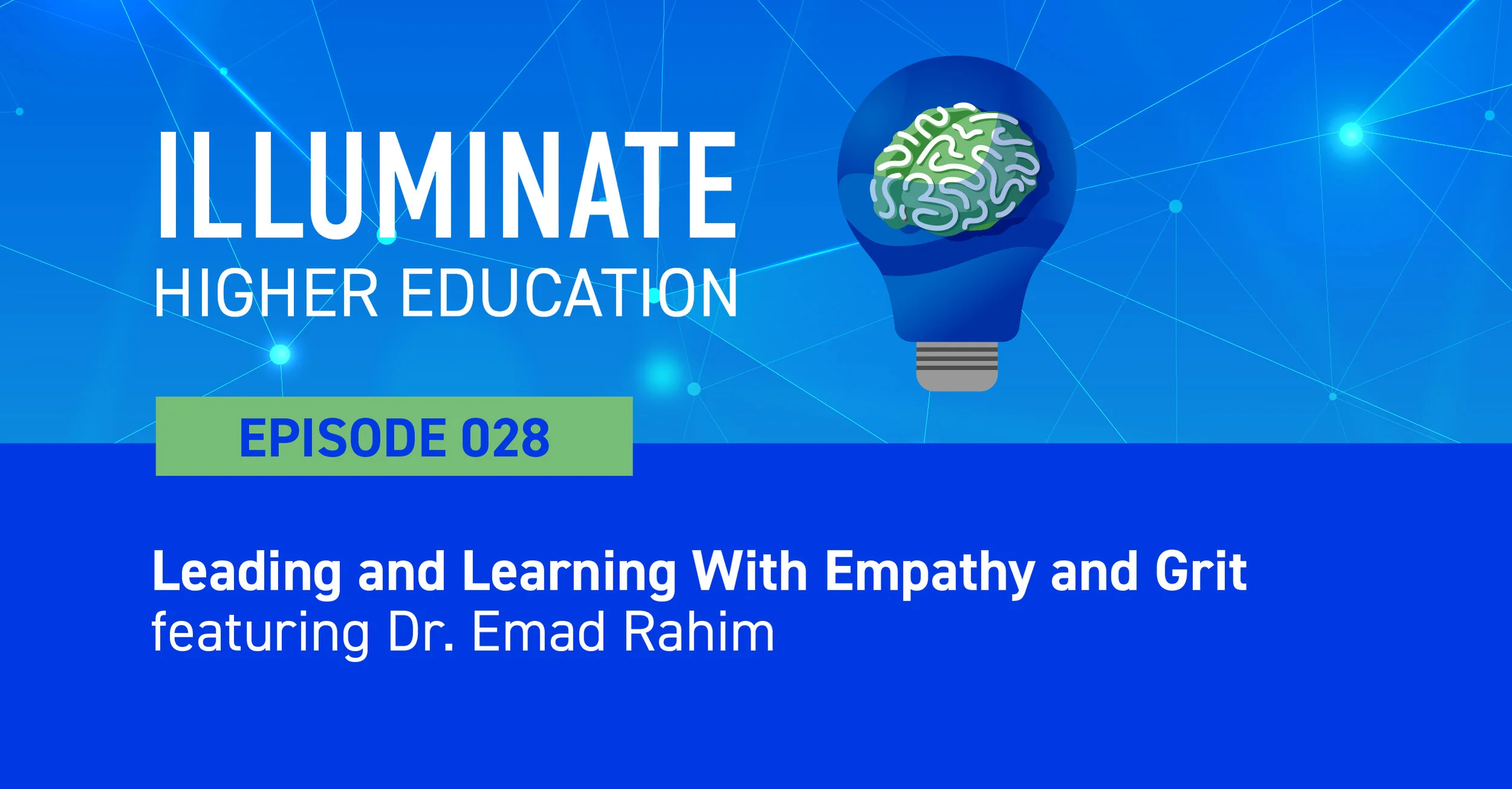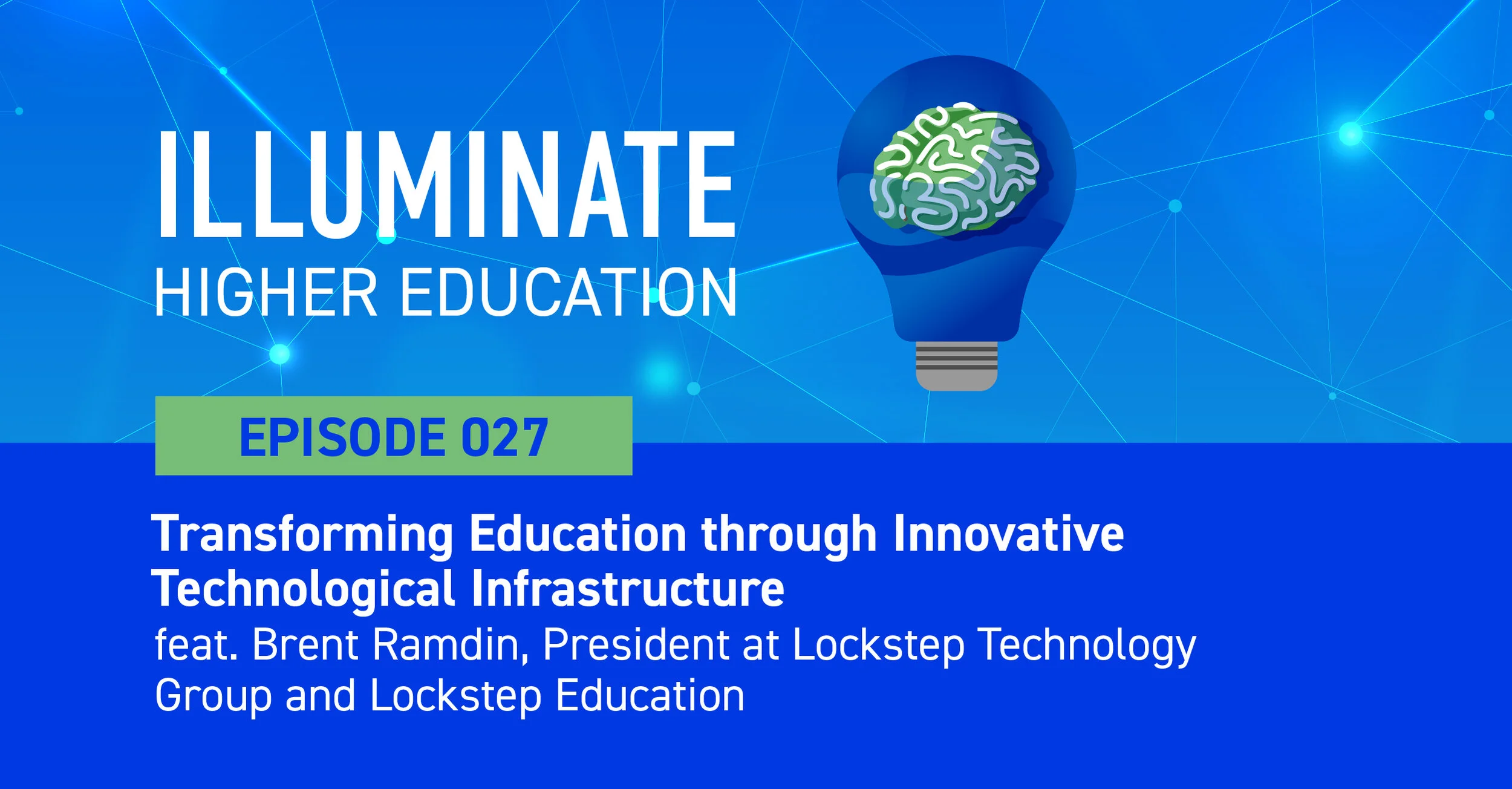Episode 46: Accessible Education for Everyone with Pierre Dubuc, Co-Founder & CEO at OpenClassrooms
Education has no borders and should be accessible to everyone, whether they're business professionals learning at their own pace or individuals who are simply looking to learn a new skill. This is an idea that Pierre Dubuc has lived by for a very long time as the co-founder and CEO of OpenClassrooms.
Episode 45: Lifelong Learning, Reimagined with Ryan Stowers, Charles Koch Foundation's Executive Director
When it comes to education, there's a big cultural shift that needs to occur. We ourselves might be the biggest barrier to transforming higher education. It's really about the role that higher education and post-secondary education plays in our lives. The shift has to begin with us changing the way we think and act about the role higher education plays in our lives.
Episode 44: The Urgent Need for a New Higher Ed System with Keil Dumsch, Writer, Editor, and Education Reformer
College is more expensive than ever, and consequently students are faced with an impossible decision: Do I risk going into debt that I may not be able to pay back, or do I skip college altogether to avoid the debt, but miss out on the benefits of a college degree?
Episode 43: Remote Learning That Matters with Jason Black, Program Director at Black River Innovation Campus
The concept of remote learning isn't new. People have been homeschooling and doing distance learning for years and years already. But the impact of Covid has caused a significant number of people to turn to remote learning rather quickly, although getting used to this style of learning will likely take some time. Fortunately, there are people like Black River Innovation Campus's Program Director, Jason Black, doing their due diligence to simplify the transition process in a meaningful way.
Episode 42: The Future of Workplace Development with Steve Lee of SkillUp
The Covid-19 pandemic has taken an economic toll on America’s workers. With unemployment rates not seen since the Great Depression, workers across the country are trying to reorient themselves in the face of an uncertain future. Part of this reorientation revolves around the fact that technology evolves at such a rapid pace that a gap is being created between industries and the skills their employees need to be effective in the workplace. An immediate solution to this common issue has been upskilling.
Episode 41: The Evolution of Modern Education Feat. Ed Powers and Christina Inge of Husky Communications
Today's world is ever-evolving, and at a rapid pace. Companies are beginning to finally recognize and value soft skills such as empathy, creativity, collaboration, and communication in their potential employees. These soft skills are becoming just as valuable to an employer as the hard skills and qualifications they typically require.
Episode 40: Transforming Workforce Development through Community Colleges, feat. Julian L. Alssid, Chief Marketplace Engagement Officer, Unmudl
The pandemic transformed educational experiences for everyone. School-age children had to learn online, while their parents tried to balance new homeschooling responsibilities along with work. Higher education institutions tried, some with more success than others, to recreate campus connections virtually.
Episode 39: Learn, Experience, Compare, Integrate: Cultivating Global Mindsets feat. Scott Marshall, President and CEO, Institute for Shipboard Education & Semester at Sea
What is Global Citizenship? Global Citizens are members of a world community who contribute to and respect the world's values, practices, and cultures. Study abroad programs provide excellent opportunities for young adults to engage with other cultures and develop a more global worldview. Even programs that last only two weeks can have a meaningful impact on an individual’s cultural fluency.
Episode 38: Course Materials Strategies: A Path to Improved Student Outcomes feat. Raj Kaji, CEO, Akademos Inc.
High tuition is not the only barrier to higher education. It is only compounded by the increasingly high costs of textbooks and other academic resources required to pass a class. Students have little room to push back against the system. They have no choice in which books an instructor will select. Some relief can be found in used textbook marketplaces, but publishers maintain their margins by regularly releasing new editions and placing limited-use restrictions on access codes for digital resources.
Episode 37: Disruptive Transformation in Higher Education feat. Matt Alex, Co-Founder and Partner, Beyond Academics
On every episode of Illuminate Higher Education, podcast host Kiran Kodithala asks his guests what inspired them to pursue a career in higher education. This episode’s guest, Matt Alex, describes it this way:
A “why” is built off the heartbreaks you have in life. You will never feel your why until you recognize a heartbreak. I know there are kids that are told they will not be successful. This is a heartbreaking experience. I want to reach those kids.
Episode 36: From Pre-K to Ph.D.: Exploring the Black Educational Experience feat. Dr. Ramon Goings, University of Maryland Baltimore County
Dr. Ramon Goings is an assistant professor in the Language, Literacy, and Culture interdisciplinary doctoral program at the University of Maryland, Baltimore County. His research focuses on disrupting narratives about the educational experiences of gifted and high-achieving Black men. He seeks to break down barriers and increase the visibility of Black success outside entertainment and sports; we need to see Black students in K-12 and higher education as our lawyers, doctors, chemists, and other high-achieving professionals.
Episode 35: Innovative Approaches to Advancing Academic Integrity feat. Eric Gibbs – President, Americas, Ouriginal
More than 60 percent of university students freely admit to cheating in some form. Definitions of “cheating” range from getting someone else to do your work, using unauthorized resources, or copying sentences without citing sources. In today’s age of limitless access to information, how can institutions of higher education empower students to think critically and creatively? How can a learner-oriented, remedial approach to academic integrity improve over the punitive, potentially career-ending plagiarism policies of the past?
Episode 34: Enhancing Student Experiences through Technology feat. Karthik Venkatesh, CIO, Walden University
Karthik Venkatesh, CIO at Walden University, joins this episode of Illuminate Higher Education to talk about his commitment to creating technological ecosystems of learning and support to enhance the student experience. Walden University is a leader in online education, having specialized in distance learning for more than 50 years.
Episode 33: Decrypting the Cost of College with Crowdsourced Data
In 2020, outstanding student loan debt increased 12%. The total outstanding balance? More than $1.57 trillion. It is the second-largest type of consumer debt outstanding—mortgages are first. The questions are always the same: Why is tuition so expensive? Why are 18-year-olds taking out six-figure loans with zero collateral?
Episode 32: Emotional Learning: Lessons from the Chessboard feat. Gabrielle Kristofich, Account Executive at Technology Integration Group
Do positive affirmations really work? The answer varies depending on who you ask and their own personal experiences. For students, a 2019 study suggests that students can perform better on math tests simply by saying nice things to themselves. More importantly, the study suggests that some students can overcome negative thoughts by focusing on effort rather than ability. Even at a young age, students can learn and grow by adopting a growth mindset.
Episode 31: Defining and Fostering Equity with California Community Colleges
If education is the great equalizer, why is it so difficult for students to start off on equal footing? The answer is simple--equal footing does not exist. Some students are preparing for college as early as middle school while others are working part-time jobs to help their families keep food on the table. The number of adult learners continues to grow as changing life circumstances allow them to pursue opportunities they could not otherwise.
Episode 30: Helping Students Achieve Their Dreams by Preparing Colleges Better feat. Laurie Heacock, Senior Advisor, Achieving the Dream
The pandemic taught us that businesses and organizations, including colleges, can pivot almost overnight and start operating in an entirely different way. But it also taught us that countless students were woefully underprepared and ill-equipped to get the most out of their college experience during this time through no fault of their own. The real-life impacts of real life are no longer invisible.
Episode 29: The Future of Higher Ed Admissions Management: An Interview with Higher Education Leader Mary Beth Marks
Mary Beth Marks is Vice President for Admissions and Enrollment Services at New Orleans University. She is also a leading voice in higher education enrollment, which is why the CEO at N2N Services, Kiran Kodithala, interviewed her in a recent podcast. They discussed her thoughts on the future of higher education admissions management, especially since Covid fast-tracked the use of technology as a workaround solution in most educational institutions.
Episode 28: Leading and Learning With Empathy and Grit: An Interview With Dr. Emad Rahim
In a concentration camp in the killing fields of Cambodia, a baby boy was born in 1978. As a new life came into the world, another one departed; the baby boy’s father was also executed there, and the child’s older brother died from starvation and illness.
Episode 27: Transforming Education through Innovative Technological Infrastructure with Brent Ramdin, President, Lockstep Technology Group and Lockstep Education
One year into the pandemic, we are still trying to unravel how it has affected and will affect the future of higher education. The digital divide is one issue that became abundantly clear. A recent report from Inside Higher Ed shows that more than 20% of students surveyed experienced technical difficulties with their internet connection, software, or hardware that were serious enough to impede their participation in class.

